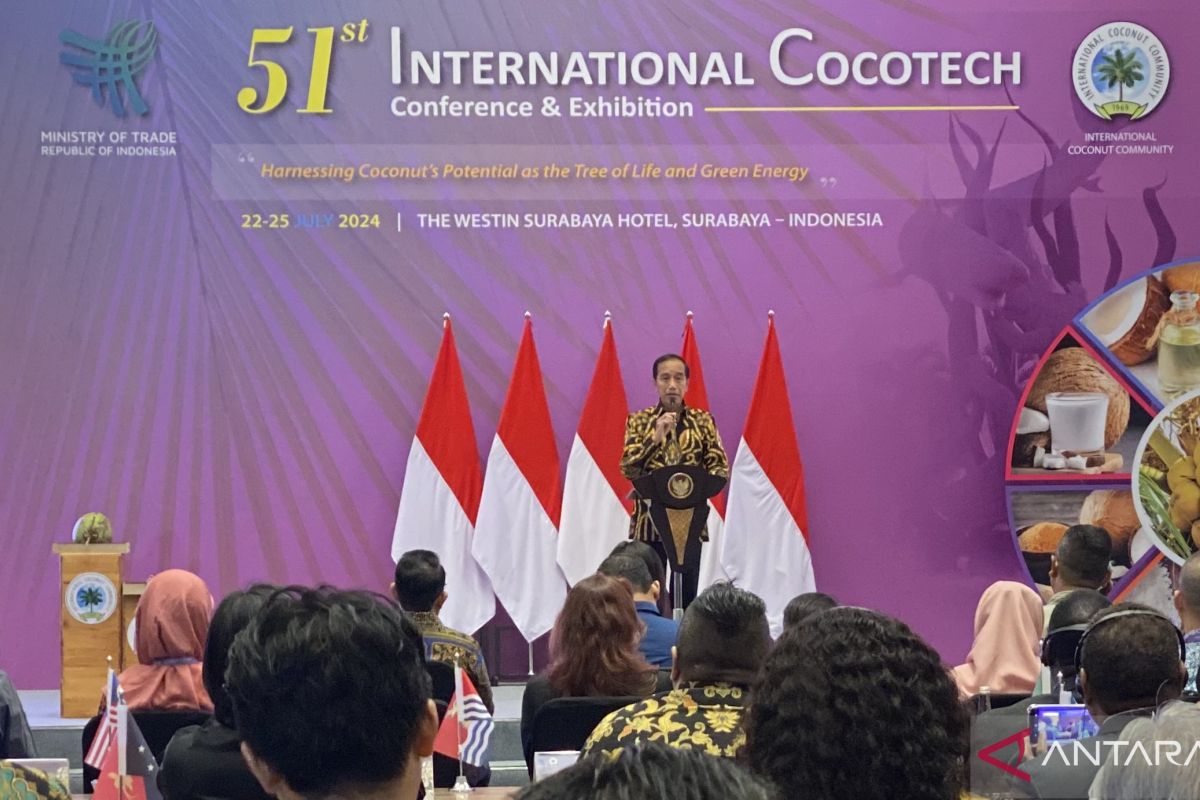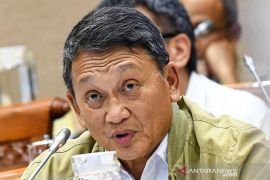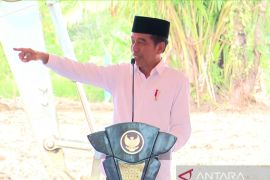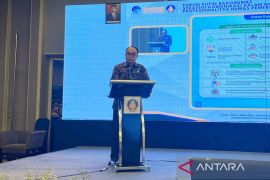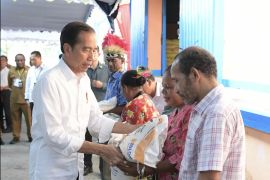"I see there is much coconut waste that is processed into bioenergy. I think this can be developed further like coconuts (whose waste can be processed) to produce bioavtur," he remarked at the 51st Cocotech Conference here on Monday.
The head of state remarked that technological advancements could support the downstreaming process, so the products fulfill the market standard and can attract many countries to buy them.
Indonesia is the second-largest coconut producer in the world after the Philippines, with total production reaching 2.83 million metric tons (MT) in 2023.
The same year, Indonesian coconut exports to the world were valued at US$1.55 billion, accounting for 38.3 percent of total global exports.
Related news: North Sulawesi-IJB Net to develop coconut-based biofuel
Meanwhile, the Trade Ministry's Director General of International Trade Negotiations, Djatmiko Bris Witjaksono, stated that the downstreaming of coconut waste into bioenergy and bioavtur fuels constituted smart projects.
Witjaksono explained that the coconut commodity, whose production reached 2.83 million tons last year, has myriad functions.
The government has mapped the downstreaming of coconut commodities so that it can diversify the products.
Meanwhile, he revealed that the plan to produce bioavtur from coconut commodity waste is still in the pilot stage, such as determining the best composition and considering its economic potential.
"There have been efforts to process coconut (waste) as an alternative for bioavtur (raw material). However, we also consider other plant sources that have the potential to be processed into bioavtur. We will pay attention to its economic aspect," Witjaksono stated.
Related news: Jokowi encourages technology utilization for coconut downstreaming
Translator: Astrid H, Kenzu
Editor: Yuni Arisandy Sinaga
Copyright © ANTARA 2024
